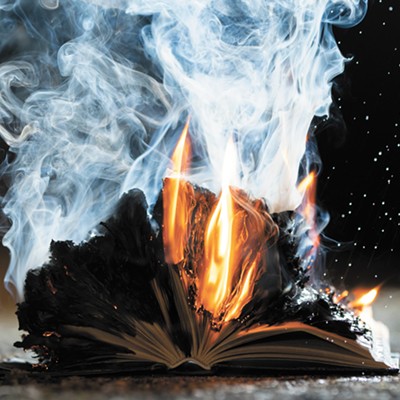Wednesday, February 2, 2011
UPCOMING BOOKS: Aliens in spaceships, an Olympic Peninsula dam, and a famous grieving widow
People whose pain appears as bright light, David Cassidy fanatics, a 60-year-old failure and Ernest Hemingway's first wife — these are some of the topics in this selective list of books published from last week through the end of February.
A Stranger on the Planet, by Adam Schwartz (Soho Press, 330 pages, Jan. 25)
A debut novel about growing up in the '60s with the effects of a divorce and an emotionally needy, awkward mother.
Noah's Compass, by Anne Tyler (Ballantine reprint of the Jan. 2010 hardcover, 300 pages, Jan. 25)
Twice divorced, remote from his daughters, and now fired from his less-than-ideal prep school teaching job, plain and unassuming Liam now hopes to rejuvenate his life with an eccentric woman half his age.
The Illumination, by Kevin Brockmeier (Pantheon, 270 pages, Feb. 1)
Suddenly, beams of light start shooting out of people's bodies — it's their pain, made visible. In six interconnected stories that add up to a novel — a husband's love notes to his dying wife are passed among all the main characters — Brockmeier questions whether suffering can be beautiful.
Journal of a UFO Investigator, by David Helperin (Viking, 300 pages, Feb. 3)
A coming-of-age novel about Danny, whose investigations everyone laughs at until someone breaks into his house and steals his diary about his encounter with Three Men in Black.
I Think I Love You, by Allison Peason (Knopf, 330 pages, Feb. 8)
Teenage girls in 1970s Wales worship David Cassidy. A generation later, after disappointments and a failed marriage, one of them gets to travel to the States and meet a Cassidy expert. Will the celebrity worship that she used back then to help her work out her relationships with boys do her any good now? As an afterword-bonus, you get a 2004 interview with Cassidy himself, then 54.
West of Here, by Jonathan Evison (Algonquin, Books, 500 pages, Feb. 15)
A novel, set on the Olympic Peninsula, that jumps between 1889, when settlers decide to build a dam on the Elwha River, and 2006, when their descendants want to tear it down for fish runs. The Klallam Tribe, early feminists, Bigfoot searchers, environmental scientists and survivalists all make appearances in this big, sprawling novel of the Pacific Northwest.
A Widow’s Story, by Joyce Carol Oates (Ecco Press, 430 pages, Feb. 15)
You've been married to him for 47 years. He goes into the hospital, but you're both sure that he'll be out in just a few days. And then, suddenly, he's dead. The famous novelist escapes through work, laughs at herself, analyzes grief in brutally frank ways. A Widow's Story (pictured near top) is nearly a companion piece to Joan Didion's The Year of Magical Thinking (2005)
Smoking Typewriters: The Sixties Underground Press and the Rise of Alternative Media in America, by John McMillian (Oxford UP, 300 pages, Feb. 17)
Today we blog; in the '60s, radicals used photo-offset printing to spread the word of social change through clandestine rags of a few thousand copies each. But the principles — among Tea Partiers, among Obama's young voters — are the same: communication among rabble-rousers by non-traditional means.
When the Killing’s Done, by T. C. Boyle (Viking, 380 pages, Feb. 22)
In Boyle's 13th novel, set in the Channel Islands (west of Santa Barbara), biologists and activists duke it out over invasive species. Boyle knows his biology and the various motives of his protagonists, resulting in "a piercing vision of our needy, confused and destructive species thrashing about in the great web of life."
The Paris Wife, by Paula McLain (Ballantine, 330 pages, Feb. 22)
We think we know Papa Hemingway — old and bearded and suicidal. But in the Roaring '20s, he was young and idealistic and very much in love. A novel told from the point of view of his first wife, Hadley.
Townie: A Memoir, by Andre Dubus III (W.W. Norton, 400 pages, Feb. 28)
A distant but famous father (also a writer); a working-class, single-mother upbringing in a Massachusetts mill town where drugs were readily available; and a mix of rage (lots of fights) and sensitivity (lots of storywriting) combine to enliven the memories of Dubus (rhymes with "excuse").
















